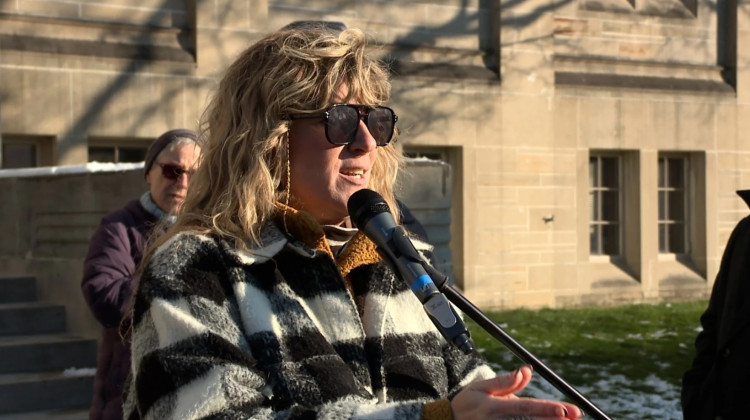As students soon head back to school, many districts will be faced with teacher shortages, especially in areas including math. WFYI’s Taylor Bennett spoke with XR Technologies founder and CEO Kevin Berkopes. His company recently received permission from the Indiana Department of Education to license K-12 mathematics teachers. Berkopes talks about why there is such a huge gap in what is needed and the lack of available teachers.
WFYI's Taylor Bennett: Why is there such a gap?
XR Technologies founder and CEO Kevin Berkopes: I think it's it's probably 20 years in the making. Lots of universities were trying to fix this problem by, you know, sort of historically recruiting people into schools [of education], right. So a lot of state funding among otherwise nationally to get people interested in the idea of being an educator.
I think being an educator is very attractive. But what wraps around that culturally now in the U.S. and otherwise, is a very difficult job. And so the decline in school of ed enrollees is, I mean, with that we've lost maybe 35-40 percent of people that are signing up to be teachers. Transition to Teaching kind of cropped up out of that. Teach for America and other types of programming where they were thinking about talent as you get these highly educated or high resourced individuals and kind of ship them into communities. That hasn't worked for a lot of complex reasons, one of which is that you really want teachers that are from the community that are teaching the children from that community.
And so that the gap is huge, because the incentive to be a teacher, what's expected of them has historically changed over the last 10 to 15 years. But we kind of treat them as a commodity, rather than a human being that has a real professional expertise. The job, as it stands today, is not attractive to a lot of young people, or otherwise. And it's pushed a lot of the the older veterans out because it's changed so much in the last couple of decades. So it's it's really at a crisis level.
It's something that if you look nationally, there are not just a few vacancies, there's hundreds. In every state and specifically for math, there's hundreds, because the incentive to have that type of content knowledge, and be able to work in another industry that doesn't put those cultural constraints on you is really high. And people just aren't choosing teaching anymore.
Bennett: Does it have to be so complex? When you think you think about math? I mean, I remember struggling so much, you know, when it came to numbers, that's probably why went into broadcasting because I didn't have to think about numbers too much. But when you when you look at math, and you go about training and looking for teachers, what is the simple approach to math?
Berkopes: I think, I think it's kind of interesting that a lot of adults that I talked to say something similar to what you just said. I would say that the discipline is somewhat culturally taught in a way that makes unapproachable to certain populations. It's actually if you are and do find yourself drawn to the humanities and arts, mathematics is very, very similar, but the way that it's taught is not.
We try to change the the cultural approach to mathematics, such that you understand, creative problem solving and thinking through and understanding and modeling and all of these things are really a part of what being mathematical is, it's human. To humanize a content discipline that seems so cold and is done in a way, especially in the elementary schools, where you have ... I like to tell the story, you have a carpet in a rocking chair and these beautiful things in the literacy side of an elementary classroom, because a lot of elementary school teachers feel more passionate about the literacy and the reading and growth and then you go back to your cold desks separated from everyone and do math, you know, in this cold way. The way that it's presented really denudes, a lot of the value and positivity that could be wrapped around the discipline.
Bennett: Thanks for all that you're doing to support education.
Berkopes: Well, I appreciate you having us in.
 DONATE
DONATE








 Support WFYI. We can't do it without you.
Support WFYI. We can't do it without you.